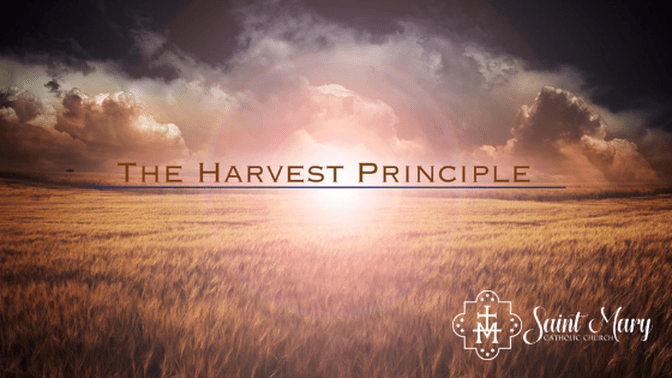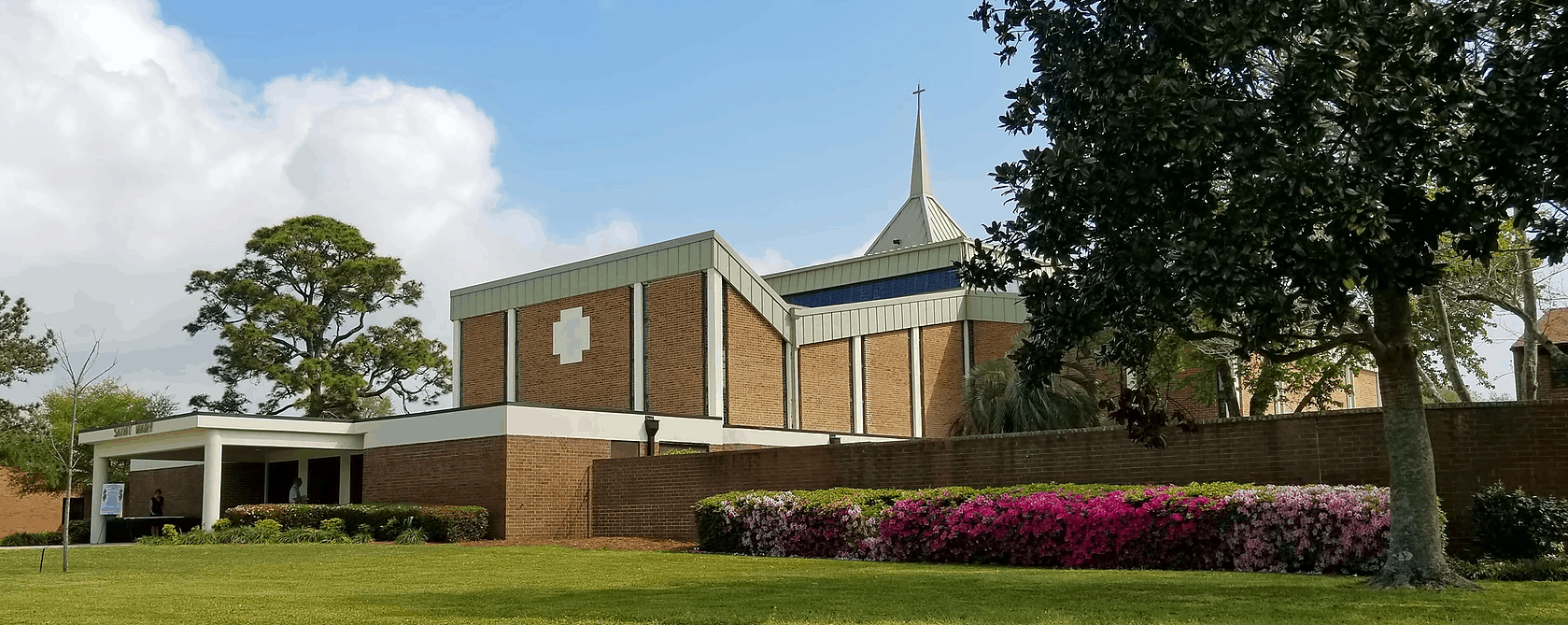
You Reap What You Sow, What Does That Mean?
We began a new homily series this week called The Harvest Principle. The Harvest Principle relays the fundamental agrarian formula of “you reap what you sow”! In farming, when you take a seed and plant it in the ground (sow), and all the elements of the formula are present; good soil, water, sunlight – you will benefit (reap) of the outcome. If you plant a tomato seed you will enjoy eating the tomato. If you plant wildflower seeds you will enjoy the beauty of the colorful flowers and so on and so on…
If you translate that formula into our human experience of life, “you reap what you sow” can become a fundamental formula for the success or collapse of our Christian morality. When we sow good seeds, through our actions and the decisions we make, with time and persistence, we will reap the benefits of that behavior. If we sow bad seeds, again through our behavior and the choices we make, with time and creating a habit of sowing bad seeds, it cumulates into consequences that can be detrimental to our happiness and well being.
First, we must understand that the seeds we sow, most often, lay dormant for some time or at the very least, they mature slowly. And, they require adequate conditions to thrive. A single seed left to fend for itself will most likely not survive. We must also infer that the more seeds we plant the more “outcome” we reap. More tomato seeds get you more tomatoes; more flower seeds, more flowers. These principles apply for both good seeds and bad seeds.
Jesus provided us with a pretty good plan for planting the necessary seeds for a good harvest, an abundant harvest that will lead us to eternal life with Him. Primarily, following the commandments to love the Father and love your neighbor, will help create habits in us that will reflect that love to all we meet. That love, in turn, will grow and provide the elements necessary to nurture the good seeds that others will sow. This is a simple concept but not an easy one. It often takes years of sowing good seeds that in turn become good habits that will eventually shape and form our consciences. Similarly, sowing bad seeds, over time will cloud our vision and affect our ability to clearly see the benefits of sowing good seed.
The Harvest Principle and its sidekicks, time and multiplicity, are important and effective guidelines in living a fruitful life. However, they are not meant to be used as punishment for the bad seeds we may have sown in our past. The good news is there is time to adjust the formula. We have God’s mercy and grace and with those, we can begin to sow the good seeds of life and experience a more abundant and glorious harvest. Begin today!

